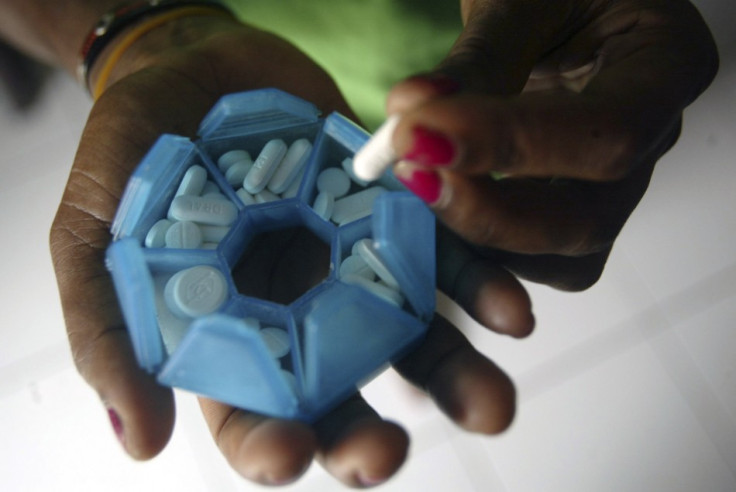HIV Research: Gene-Editing Paves Way for Treatment Without Antiretroviral Drugs

Researchers in America have succesfully genetically engineered the immune cells of 12 HIV-positive patients to resist infection.
A team from the University of Pennsylvania managed to decrease the viral loads of some patients taken off antiretroviral drug therapy entirely, including one patient whose levels became undetectable.
The study, appearing today in the New England Journal of Medicine, is the first published report of any gene-editing approach in humans.
According to Pablo Tebas, who was involved in the study, the "gene-editing" approach mimics the body's natural resistance to HIV found in individuals with a specific mutation in the gene for CCR5, a molecule the virus uses to enter target calls.
He told MedPage: "This is the first step to try to make cells resistant to HIV."
Carl H June, the Richard W Vague Professor in Immunotherapy in the department of Pathology and Laboratory Medicine at Penn's Perelman School of Medicine, said: "This study shows that we can safely and effectively engineer an HIV patient's own T cells to mimic a naturally occurring resistance to the virus, infuse those engineered cells, have them persist in the body, and potentially keep viral loads at bay without the use of drugs."
He added: "This reinforces our belief that modified T cells are the key that could eliminate the need for lifelong ADT and potentially lead to functionally curative approaches for HIV/Aids."
For the study, the team infused the modified cells, known as SB-728-T, into two groups of patients. The team removed CD4-positive T cells from the patients and used what are called zinc-finger nucleases to edit the cellular genome. The genetic target was the gene for CCR5, one of the co-receptors that HIV used to enter the cell.
Each patient was treated with a single infusion between May 2009 and July 2012. Six were taken off antiretroviral therapy altogether for up to 12 weeks, beginning four weeks after infusion, while six patients remained on treatment.
Tebas stated the infusion appeared to be safe, with minimal side effects. One patient reported the symptoms of fever, chills, joint pain, and back pain in the days after the procedure.
The gene is naturally mutated in some people, which is refered to as the delta32 deletion. If the individual inherits two copies of the mutation, their cells are almost completely immune to HIV. Research has found that having one copy of the mutation has been association with a slower progression of HIV.
Bruce L Levine, a professor in cancer gene therapy at the University of Pennsylvania, said: "Since half the subject's CCR5 genes were naturally disrupted, the gene editing approach was building on the head start provided by inheriting the mutation from one parent."
He added that the latest study could open up further possibilities for HIV and Aids research.
He continued: "This case gives us a better understanding of the mutation and the body's response to the therapy, opening up another door for study."
© Copyright IBTimes 2025. All rights reserved.






















